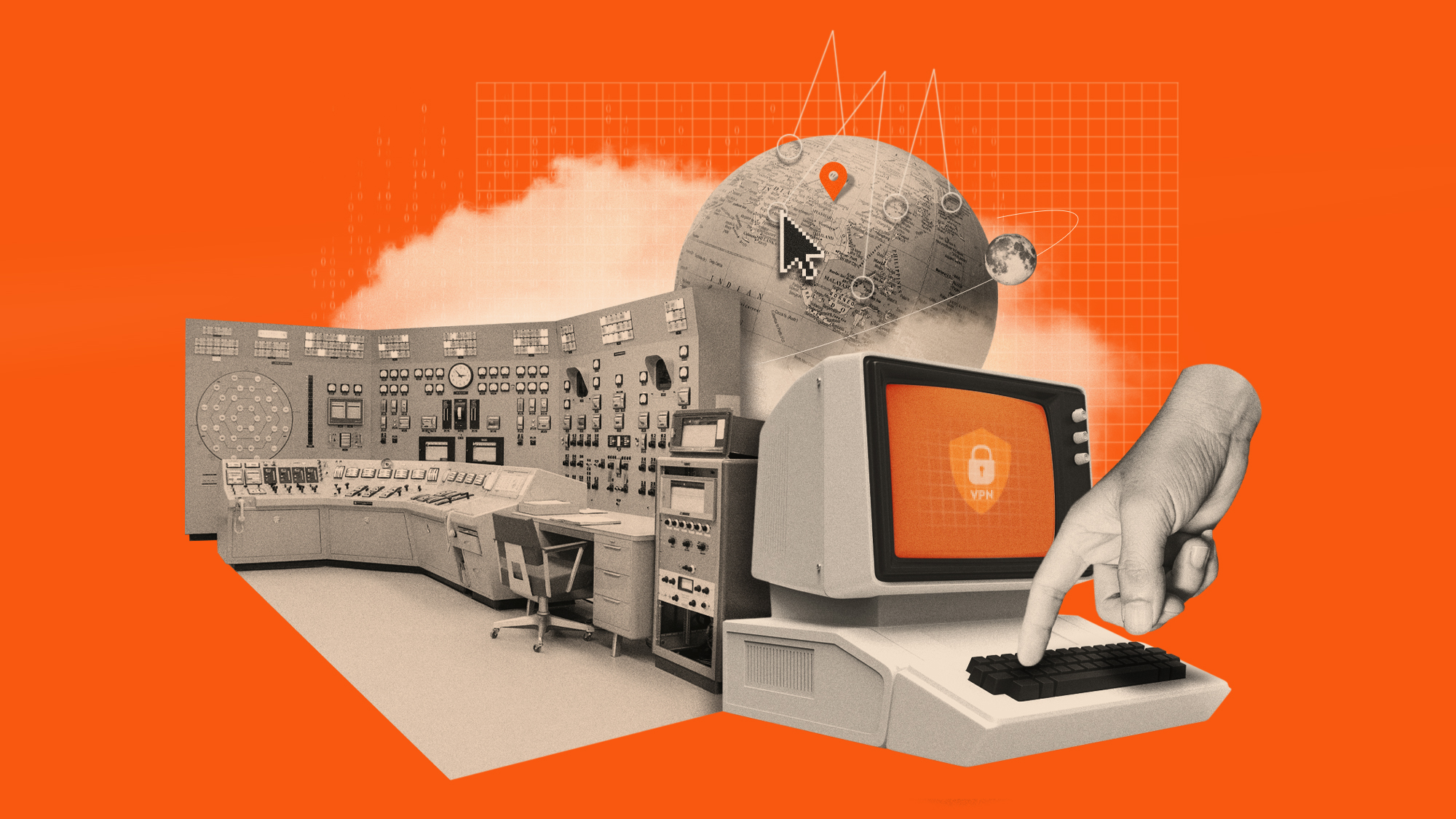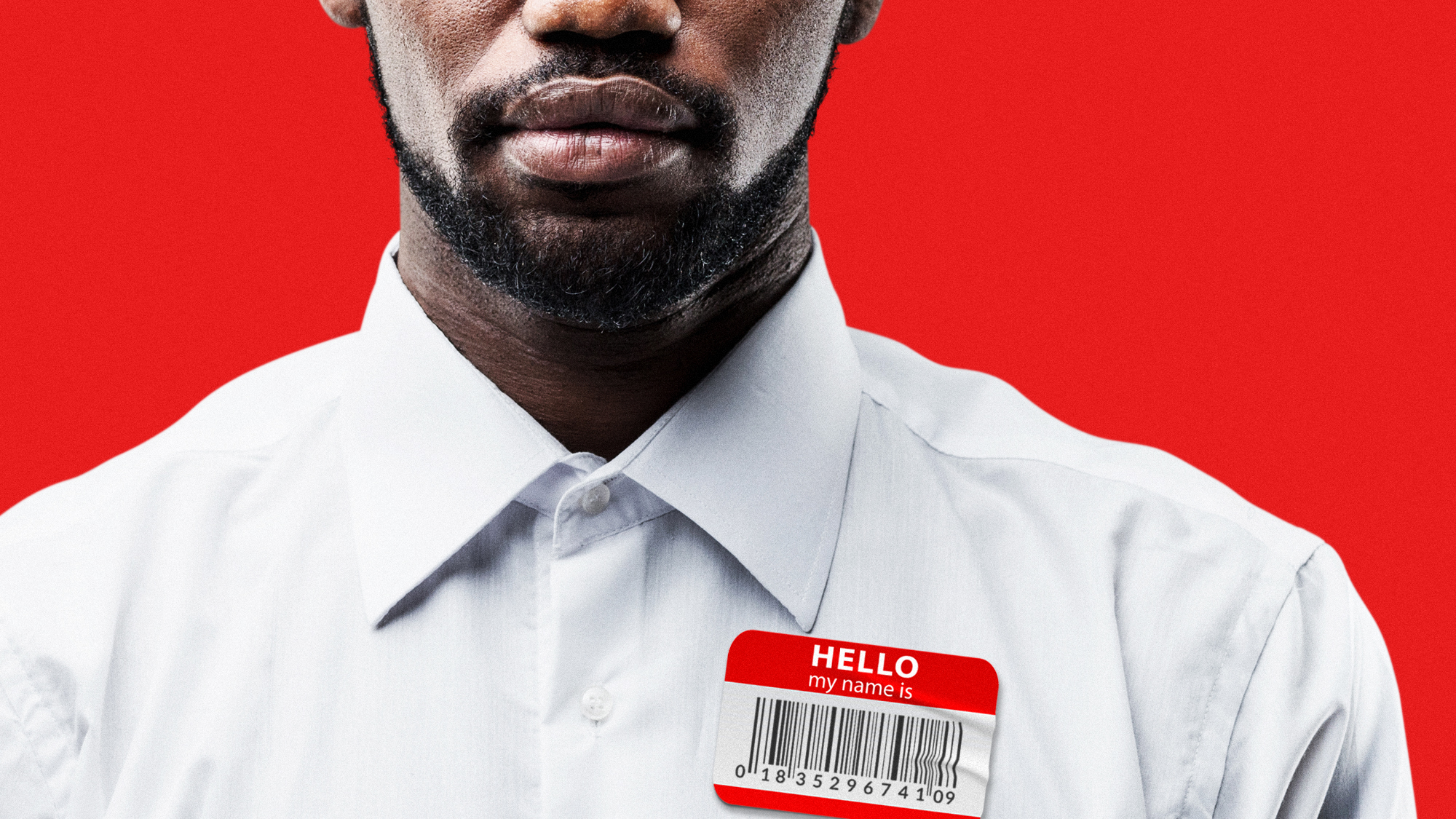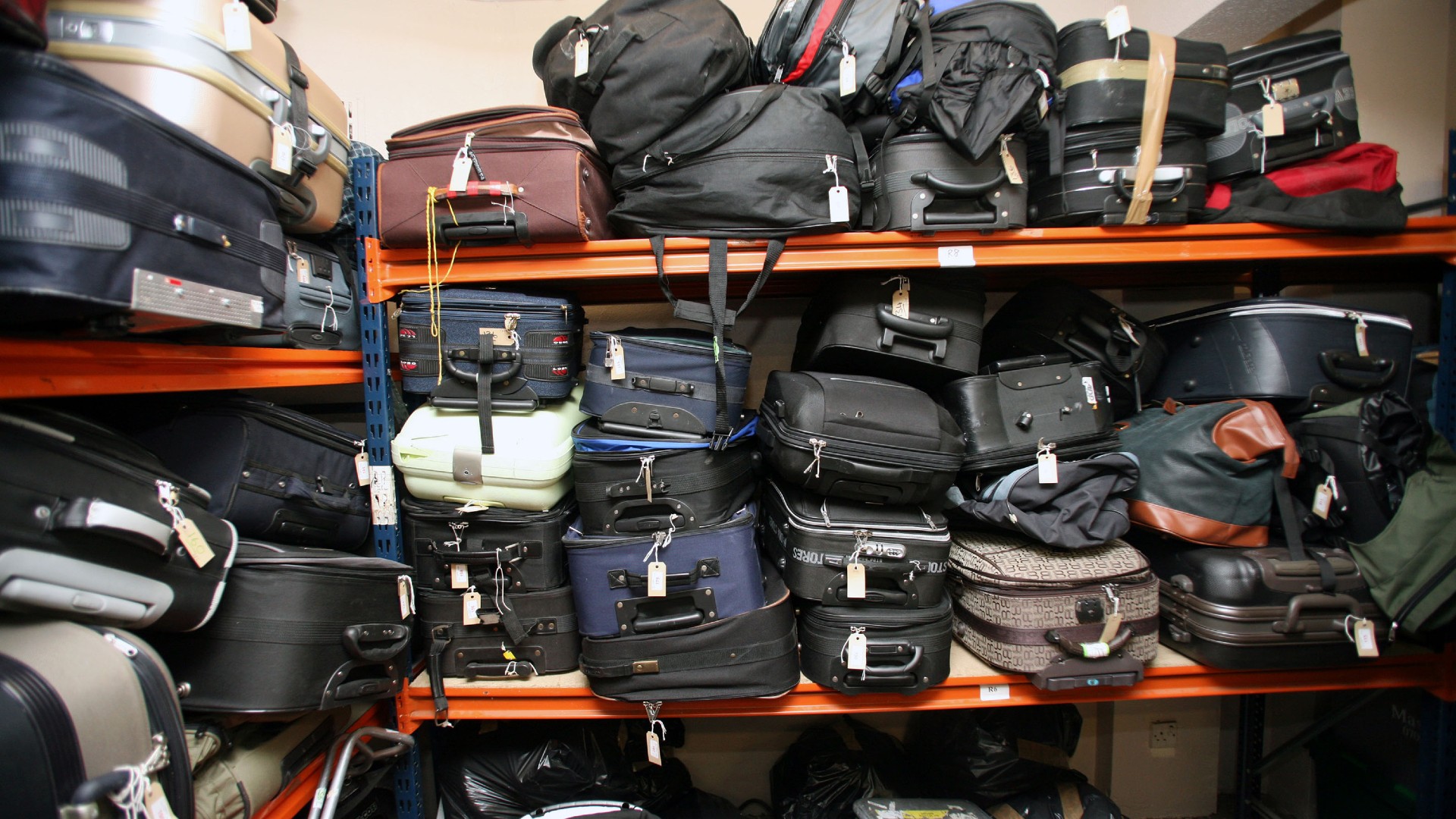What are VPNs and how do they work?
UK sees surge in use of virtual private networks after age verification comes into effect for online adult content

A free daily email with the biggest news stories of the day – and the best features from TheWeek.com
You are now subscribed
Your newsletter sign-up was successful
Interest in digital tools that can hide or alter an internet user's location has exploded in the days since the UK introduced age verification for online adult content.
Virtual private networks (VPNs) made up half the top 10 most popular free apps downloaded in the UK last weekend, according to Apple's rankings. Proton VPN, which leapfrogged ChatGPT at the top of the chart, reported a more than 1,400% increase in sign-ups from UK-based users since the new rules came into effect on Friday. Second place was taken by NordVPN.
VPNs are often relied on by citizens in authoritarian regimes such as Iran to get around strict internet censorship, Proton said on X, and such "large spikes in sign-ups" would typically be associated with "major civil unrest".
The Week
Escape your echo chamber. Get the facts behind the news, plus analysis from multiple perspectives.

Sign up for The Week's Free Newsletters
From our morning news briefing to a weekly Good News Newsletter, get the best of The Week delivered directly to your inbox.
From our morning news briefing to a weekly Good News Newsletter, get the best of The Week delivered directly to your inbox.
"Once the domain of Silicon Valley techies and security engineers", VPNs have "become mainstream with the rise of remote working and growing concerns over online privacy", said The Independent.
How do they work?
Once installed on your device, a VPN encrypts your traffic, sending it through a remote server that disguises your internet protocol (IP) address. This process, known as a "handshake", allows users to mask their true geographical location.
"It is a bit like using a phone box instead of your own phone to make a call, so that the receiver cannot tell who is ringing," said The Telegraph. The ability to alter one's digital location enables a wide spectrum of activity, from accessing uncensored news in authoritarian states to browsing streaming service catalogues from other countries.
VPNs also allow users to hide their browsing activity from employers, advertisers, hackers and even their own internet service providers.
A free daily email with the biggest news stories of the day – and the best features from TheWeek.com
● Learn more about VPNs from our sister site, Tech Radar
What are the benefits and drawbacks?
While enhancing your online privacy, a VPN does not completely anonymise your traffic. Your personal data and logins will still be retained by websites, and a VPN cannot prevent malware from infecting your system.
Connecting to a VPN can slow down your internet speed and increase your data usage, and "not all VPN providers are trustworthy", said Forbes. "Some may log your browsing activity or sell your data", especially if they are offering their services for free. "Truly secure and effective VPNs usually come at a cost" – in the region of £10 a month.
VPNs are also banned altogether in some countries – such as China, Iran, Russia, Belarus and some Gulf states – meaning you could face legal action if caught using one there.
Are they legal in UK?
VPNs are legal in the UK and remain so under the new Online Safety Act, despite support from the then Labour opposition for more restrictions on their use. It remains illegal to use them to watch pirated films and football matches. While using a VPN to bypass geographical restrictions on streaming services is not illegal, it is considered a violation of terms of service and could result in a ban from the platform.
Under the new age verification rules, Ofcom has told platforms not to host, share or permit content encouraging the use of VPNs. Its head, Melanie Dawes, told MPs in May that "a very concerted 17-year-old who really wants to use a VPN to access a site they shouldn't may well be able to".
"That’s the beauty of VPNs," Anthony Rose, a UK-based tech entrepreneur and a critic of the new age verification measures, told the Financial Times. "You can be anywhere you like, and anytime a government comes up with stupid legislation like this, you just turn on your VPN and outwit them."
When you purchase through links on our site, we may earn an affiliate commission. Find out more
-
 The 8 best TV shows of the 1960s
The 8 best TV shows of the 1960sThe standout shows of this decade take viewers from outer space to the Wild West
-
 Microdramas are booming
Microdramas are boomingUnder the radar Scroll to watch a whole movie
-
 The Olympic timekeepers keeping the Games on track
The Olympic timekeepers keeping the Games on trackUnder the Radar Swiss watchmaking giant Omega has been at the finish line of every Olympic Games for nearly 100 years
-
 How digital ID cards work around the world
How digital ID cards work around the worldThe Explainer Many countries use electronic ID to streamline access to services despite concern by civil rights groups they ‘shift the balance of power towards the state’
-
 The rise of the lost luggage auction
The rise of the lost luggage auctionIn the Spotlight Lost luggage hauls are attracting millions of views online
-
 Bonnie Blue: taking clickbait to extremes
Bonnie Blue: taking clickbait to extremesTalking Point Channel 4 claims documentary on the adult performer's attention-grabbing sex stunts is opening up a debate
-
 Do smartphone bans in schools work?
Do smartphone bans in schools work?The Explainer Trials in UK, New Zealand, France and the US found prohibition may be only part of the solution
-
 Bonnie Blue, Andrew Tate and a new cult of sex extremism
Bonnie Blue, Andrew Tate and a new cult of sex extremismTalking Point OnlyFans adult worker and male misogynist have 'plenty in common' claims commentator
-
 The biggest viral moments of 2024
The biggest viral moments of 2024In the Spotlight From Glasgow's Wonka-shambles to Moo Deng, these are the memes that went mainstream this year
-
 Sabrina Carpenter and Spotify conspiracy theories
Sabrina Carpenter and Spotify conspiracy theoriesIn the Spotlight Popularity of viral hit Espresso sparks accusations of modern 'payola' and algorithm hijacking by streaming platforms
-
 'Are We Dating the Same Guy?': do Facebook groups harm or help?
'Are We Dating the Same Guy?': do Facebook groups harm or help?Talking Point Women share their relationship experiences to try to stay safe on dating apps but critics highlight legal and emotional issues